Development With Dignity
Villagers in Pakistan show how aid projects can succeed when they, rather than government officials or donors, set the agenda and invest in the work.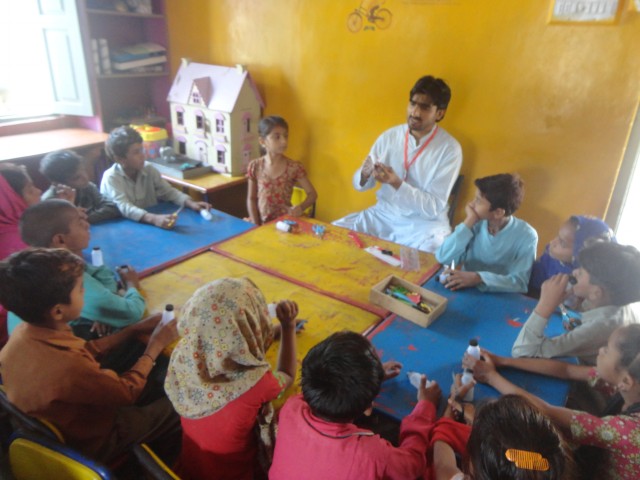 Asad Ali teaches an arts and crafts class in the Pakistani village of Khairo Dero. (Courtesy of Zubeida Mustafa)
Asad Ali teaches an arts and crafts class in the Pakistani village of Khairo Dero. (Courtesy of Zubeida Mustafa)
KARACHI, PAKISTAN — Asad Ali, a young man in his 20s, has a passion for teaching. He is a high school graduate and has no teacher’s training degree, but he has compassion and inborn pedagogic skills that endear him to his students. His father wanted him to join the army, but Ali preferred his classroom to the battlefield. If Pakistan had more teachers with his commitment, the country would be a different place altogether.
Ali would be a failure in the postmodern education system the Pakistan government is making futile attempts to create for a people still stuck in the medieval ages. Had Ali managed to adjust to the prescribed system, his students in Khairo Dero—the village in Sindh where he lives and works—would be unable to relate to him as they do now.
The key to Ali’s success lies in Khairo Dero’s adoption of a holistic approach to community development—both social and economic.
The development process has two main participants: the beneficiary, i.e., the people, and the provider, which can be the government or a nongovernmental organization. Because providers are the stronger ones in this power relationship, they tend to decide what needs to be done. And if there happens to be a foreign aid component, donors may have the final say, even if their choices may not be appropriate for local conditions.
This basic fact has not been generally understood by those involved in Pakistan’s development process. Their training and goals have been set in foreign academia or in a system determined in Pakistan in a Western framework. That is why the country remains mired in poverty.
There are some exceptions. Some of Pakistan’s social scientists have benefited from the knowledge of the West, using it to understand indigenous conditions and the culture of the East. The best known was Akhter Hameed Khan, founder of the Orangi Pilot Project, which began in 1980. Orangi was a huge squatters’ settlement on the outskirts of Karachi. Based on his research on the ground and his studies abroad, Khan strongly believed that the community knows exactly what it wants and creates its own leadership. It knows how the needs of the people can be met. His credo was to let the community develop itself on a self-help basis by providing it with technical guidance and financial support to facilitate its work.
Khan’s philosophy has found international acceptance from theorists of community development. But his own country has failed to officially observe this basic principle in its policies, instead tending to join hands with people who upscale the development process without community input, creating a disconnect between the authorities and the community. As a result, the government appears unsympathetic to the needs of the people, and demands compliance with its own agenda.
Against this backdrop, I was eager to visit Khairo Dero, a small village of 3,600 situated 280 miles northeast of the port city of Karachi in Sindh. Khairo Dero also happens to be the home of the ancestors of my friend, Naween Mangi. Having lived in Karachi, Mangi discovered her roots when her travels in Sindh took her back to the home of her forebears a decade or so ago. Mangi is a trained journalist with a high-class Western education; at a young age, she was appointed the Karachi bureau chief of the American TV channel Bloomberg. She did well there, until she felt that she couldn’t juggle her job as well as her duties at the Ali Hasan Mangi Memorial Trust, which she had founded in her grandfather’s memory. That work often required her to be away from Karachi. She had to make a choice, and she chose her people.

She invited me recently to revisit Khairo Dero, where I had accompanied her five years ago. It is a seven-hour drive from Karachi. Because road-building has been on the agenda of all recent governments in Pakistan, the country is blessed with a fine network of roads connecting all major towns and cities. As we drove, village after village loomed before us, each sleepy, dusty settlement no different from the one that had receded. Sindh’s countryside shows few signs of development. No electricity pylons or telecom towers break the monotony of the horizon; they only line the roads. We drove past fields of wheat waiting to be harvested in an environment soaked in bright sunshine.
As we turned into Khairo Dero and drove down the main street of the village, a lush green patch of land appeared. This park has a lawn lined with trees and bushes, a fountain, a variety of terra cotta animals and fowls strategically arranged, and swings and slides to provide children hours of entertainment.
It was hot—the day temperature was 114 degrees Fahrenheit the day of our early April visit. It would soar to 125 degrees in a few weeks, I was told. But once indoors, I noticed that the flow of air from the fans was uninterrupted. That didn’t signify any improvement in Pakistan’s energy situation, which leaves many rural areas without electricity for 18 hours a day. Rather, it signaled the debut of solar power in Khairo Dero. Every household now has a solar panel all its own.
Next to the modest but clean rest-house where I stayed is the community school, which is Ali’s kingdom. When I visited Khairo Dero five years ago, the sewage system was being laid and some concrete houses had been constructed. But that was just the beginning. Today, every house in the village boasts a concrete roof, a kitchen with a gas stove, a toilet connected to the sewer lines and a hand pump for water.
“Now this,” I thought, “is development in the true sense of the word.” How had Mangi performed this miracle? She said it had not been easy sailing. There had been failures, and she had learned as she went along. Her main strategy was to take a cue from the people and be flexible. She had studied Khan’s philosophy and work, and she had interacted with his successor, Perween Rehman, director of the Orangi Pilot Project Research and Training Institute, who influenced her significantly (Rehman was shot dead in 2013, possibly as a result of her activism).
Mangi explained how Khan and Rehman had influenced her work in Khairo Dero. For example, she said, “When the people rejected the house plan I proposed, saying the rooms were too small for their large families, I dropped the plan and adopted another.”
Her original plan had been to provide the village’s children with a school and library. “But then, as I went into the community and noticed children running around barefoot in the streets all day with nowhere to play, I started asking them what they would like to do. They all wanted something ‘fun to do,’ ” Mangi said. “So we built a playground and an activity hall with all manner of games and art stuff.” Later, the community decided it needed a school, because the government schools were dysfunctional. It developed a plan for the school and approached The Citizens Foundation; the Mangi family donated land for the school. Mangi said she tried entering into a partnership with the government by adopting four of its schools, but gave up the idea because she found it difficult to work with officials. Now, all Khairo Dero’s children in are enrolled in school, in a country where more than 20 million children are estimated to be out of school.

Education promises to bring about a change in mindset. Khairo Dero girls who will graduate from school next year are already discussing their college plans.
The story of Khairo Dero’s health clinic is similar. There is a government dispensary a stone’s throw from the village, but it barely functioned. When the village decided it wanted its own facility and doctor, Mangi helped the community arrange it.
That doesn’t mean Khairo Dero villagers just have to ask to get what they want. All propositions must be feasible, and the community has to share the cost. Income generation has always been the biggest challenge. Men I spoke with during my 2014 visit and again in April expressed anxiety about unemployment and their economic problems. Those who till the land are landless and heavily in debt. They didn’t get a fair deal from the large landowners who rule Pakistan. Cattle farming has limited scope. No entrepreneur is willing to set up industries in the area, where electricity is not assured and it is too remote from city centers where skilled labor is available. The Mangi family trust has made 150 microloans and reports success stories and 100% loan recovery. But not every product has found a market. Mangi’s attempt at introduce candle-making, jewelry-crafting and block printing in the village has come to naught, as no outlets for the finished products could be found. She is now exploring new economic activities.
Numerous challenges have to be considered. The housing and solar panel projects started so well that the demand grew by leaps and bounds. Mangi responded instinctively, and within no time she had spread her work to 40 neighboring villages. Then came the crunch. There were arguments over who had entitlement to facilities. It became difficult to assess real poverty. Mangi realized that the project’s development dimension was being lost as it started leaning toward becoming a charitable activity. The confidence she had so assiduously built up began to erode, and donors began to demand special priority for their favored projects. Procedures for applications, need assessment and surveys worked out by Mangi’s staff were in danger of being compromised. The only solution was to roll back her program to the confines of her own village until it was consolidated. She learned by experience that charity is not—and should not be—confused with development. She is careful now about preserving villagers’ dignity and mitigating their sense of dependence and helplessness by involving them in their own development projects.
The secret of Khairo Dero’s success is the confidence the people and the donors have in Mangi’s trust. Little things matter, as does every person, which was Mangi’s motto when she launched the project in 2008. In Khairo Dero, she dresses conservatively, as the women do in rural societies. Her staff are local people who have been trained in the community to meet its needs, not the demands of the globalized world. Above all, people have a sense of ownership, because they have contributed their labor and helped pay the total cost of projects they have undertaken. As a result, they take responsibility for the maintenance of their projects. There is no crime in the village, and when Mangi faced some resistance from encroachers, the community rallied round her in support.
Who are Mangi’s donors? No foreign agencies. Mainly they are friends and family, and friends of friends. When she needs to, Mangi emails those on her donors’ list; within a day or so, the requisite pledges are made, and then donors receive another email saying, “No more funds needed.” Mangi says her biggest difficulty is collecting funds for administrative costs, which are roughly $1,500 per month—15% of the total budget.
I ask Mangi whether she hopes for support from the government in her scheme for community development. “I would be naïve if I say no,” she says. To make her work more effective and enhance achievement, she initially planned to partner with the government, which has more resources; that is why she adopted government schools.
“But cooperation from the government was not forthcoming. We had to undertake the work the government could have easily done,” she explains. “We have built four bridges in the areas around Khairo Dero because the government didn’t do so, and farmers/villagers were in severe distress, unable to access their lands or homes through water courses. In all these cases, the community provided labor and we provided material. We built culverts at a fraction of the cost the government would have. Had the government done the bridges—it’s their job and they are given funds for this very work—we could have used our limited resources elsewhere.”
She concedes that rural and urban development are different ball games; she cannot replicate the models that have been designed for urban areas. After our visit, Mangi forwarded an email she had just received from the Sindh Association of North America, announcing that SANA is launching a social movement designed to get people to take ownership of their villages in Sindh. “What a lovely idea,” I remarked.
“Agreed,” she said.
Your support matters…Independent journalism is under threat and overshadowed by heavily funded mainstream media.
You can help level the playing field. Become a member.
Your tax-deductible contribution keeps us digging beneath the headlines to give you thought-provoking, investigative reporting and analysis that unearths what's really happening- without compromise.
Give today to support our courageous, independent journalists.

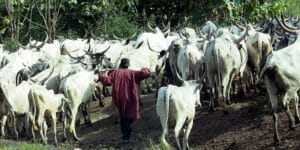
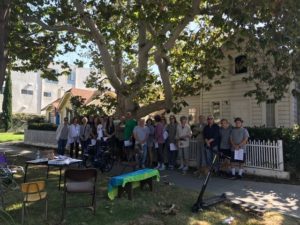
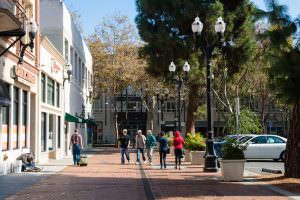
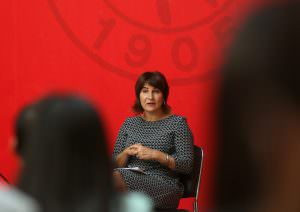
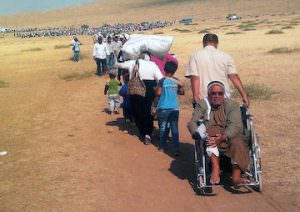
You need to be a supporter to comment.
There are currently no responses to this article.
Be the first to respond.